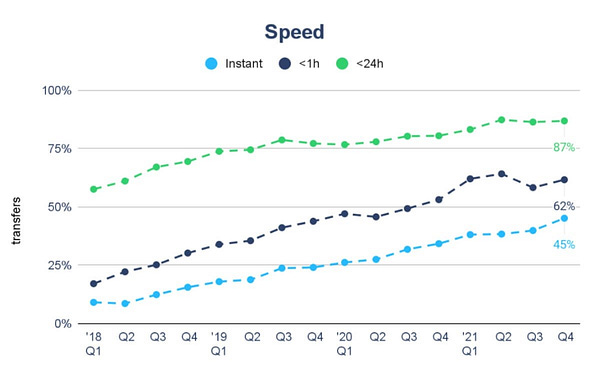3 Thoughts From Last Week:
Don’t you dare price anchor. Unless you use technical analysis (no shame if you do), I have a little secret for you: the prior price movements of a stock are meaningless. In fact, I would posit looking at a stock chart will do you much more harm than good. With a lot of stocks in 20% - 70% drawdowns right now, our brains are wired to “anchor” to those higher prices, even if they made zero fundamental sense in the first place. Understanding this natural bias we have can be helpful in trying to evaluate whether you truly believe in the long-term prospects of a business or are just tempted to “buy the dip” because a stock has tanked. All that matters is the price you pay and the future cash the asset will generate. At least, that is true if you plan to hold on indefinitely.
Identifying management red flags. Peloton was one of the big financial stories of the week when the stock tanked 25% after a report came out that they were swamped with supply and stopping production (yikes). Shares are now down over 80% in the past year, a vicious turnaround for one of the pandemic favorites. A lot of blame is getting put on management, and rightly so. They have clearly botched managing Peloton’s operating output and communicating their strategy (albeit in an extremely difficult market environment) which has sapped investors’ confidence. This highlights the importance of strong executive teams, especially in companies that are trying to disrupt an industry like Peloton is. But could we have seen this coming? Were there signs that Peloton’s executive team was a weak link with this business? I think so. Before the IPO, founder/CEO John Foley went on to CNBC and said the business was “weirdly profitable.” Unless by weirdly profitable he meant “totally unprofitable,” then this was a straight-up lie to potential investors at the time. Little anecdotes like that have popped up since (my least favorite being Foley putting his wife in charge of Peloton Apparel). You can say this is hindsight bias, but I think it is crucial to try and analyze these qualitative factors when making an investment. For example, I would have much more confidence owning Netflix stock than Peloton right now (both in slightly similar situations) just based on what I think of each executive team. Anyone can manage a business with the sails at your back. It is through these setbacks and drawdowns when your true colors come out.
Can Netflix succeed in video games? I got in some fun debates/discussions this week after stating my hesitations with Netflix increasing its video game investments. In theory, I think video games feel logical for Netflix. Subscribers already enjoy video content with them, so why not add more interactive experiences? Here are a few reasons I think the strategy is flawed, especially if Netflix just adds these games behind its subscription paywall (which it is likely to do). First, Netflix is currently limited to building mobile games, which have an abundance of supply and are mostly free to download but then make money through advertising and in-game purchases. If Netflix produces a few dozen mobile games for its subscribers, how many would switch over from the games they are currently playing? How many people would subscribe to Netflix or not churn just because these games are there? Especially when games based on their shows already exist (Squid Game spawned many mobile titles) that people can download for free, I struggle to see how this will add value. The industry (at least for mobile games) has gone away from paywalled content and subscriptions. Just ask Apple how Apple Arcade is doing. Licensing IP to gaming companies a la Disney could make sense though. Second, Netflix is severely limited by the console makers unless it can crack cloud gaming (if they did, I would actually be very bullish on Netflix’s gaming opportunity). Even if they develop the skills to produce a AAA video game like Red Dead Redemption, which will take them at least five years and would likely end in failure, they are still hamstrung technologically. If they start licensing content from other gaming publishers as the rumors say, everything still has to go through a console or PC unless you stick solely with mobile games (which again won’t move the needle). Happy to be wrong here, and the industry dynamics could change five years from now, but as someone who follows the video game industry closely, it is hard to see the light at the end of the tunnel for Netflix right now.
See you next week,
Brett
***Our fund, Arch Capital, may own securities discussed in this newsletter. Check our holdings page and read our full disclosure to learn more.***
***Want our free weekly wrap-up delivered to your inbox each week? Subscribe here.
Catch-up on Our Shows From Last Week:
5 Good Reads (couldn’t nail it down to 3 this week):
1 Good Listen:
***7investing is empowering you to invest in your future. Use our link or enter promo code "CCM" at check-out to get $10 off your first month of the service.***
Smart and Funny Tweets:


















